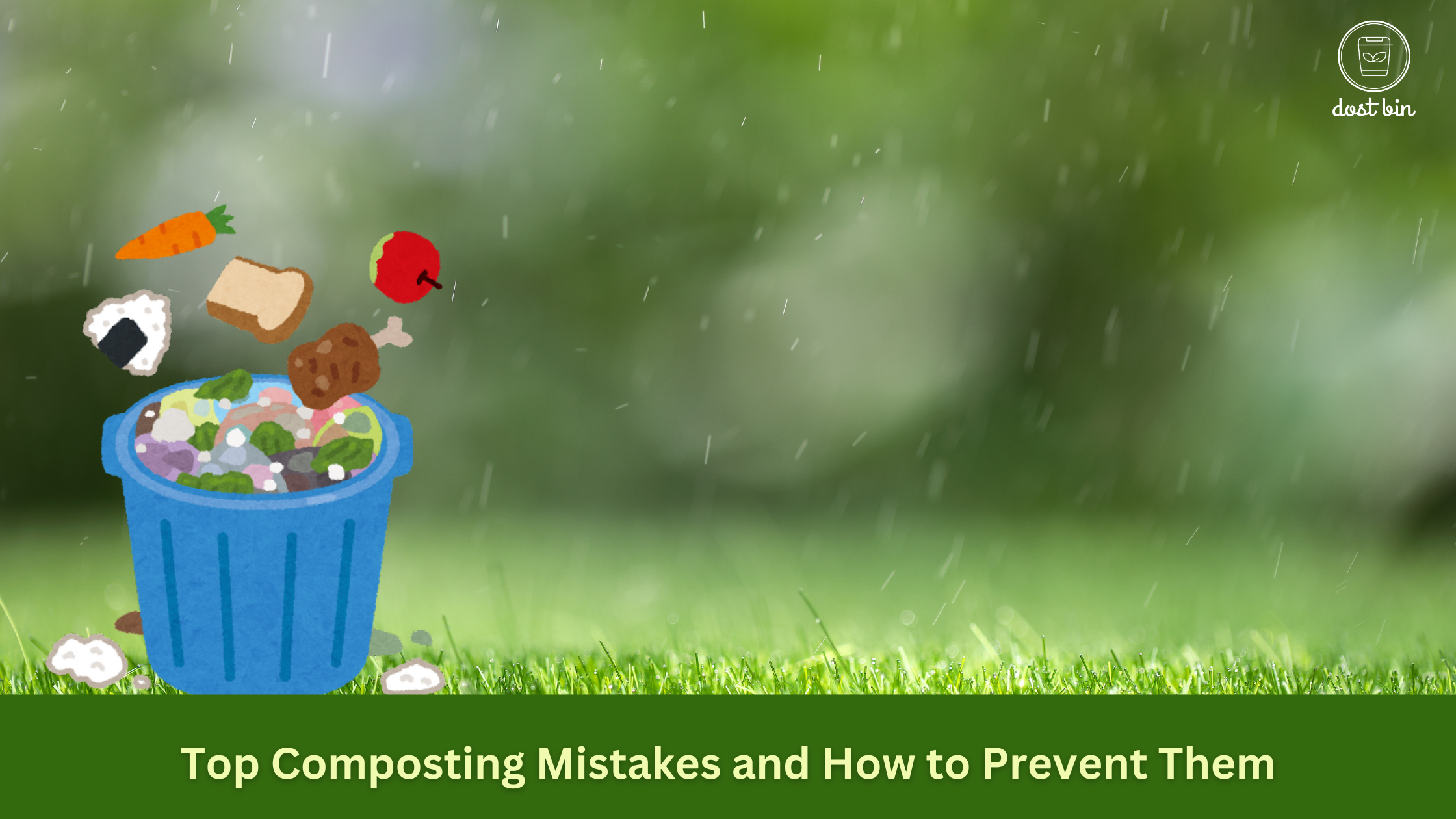
The process of composting is an incredible technique to transform waste into valuable soil that benefits the environment. When the process is done appropriately, it can transform them into a great fertilizer, decreasing your carbon emissions all at once. But, despite its ease, composting can very often go wrong, particularly for learners or beginners. Knowing the common composting drawbacks and how to evade them can make your efforts rewarding.
Composting Pitfalls & Ways to Sidestep Them
1) Adding the Wrong Materials
The common composting mistake is adding ingredients that do not break down appropriately or could damage your compost pile. Materials such as meat, oily foods, milk products, and synthetic materials would be avoided. Such items can generate bad smells, attract pests, and disturb the procedure. As a substitute, give attention to adding organic items like coffee grounds, fruit and vegetable leftovers, leaves, & eggshells.
How to Avoid It: Stick to a stable mix of brown (carbon-packed) & green (nitrogen-packed) stuff. Browns are items comprised of straw, paper, etc, while greens like grass clippings, kitchen scraps, etc.
2) Not Sustaining the Right Balance
Attaining the correct balance of brown and green materials is vital for successful composting. Excessively nitrogen-filled items (such as greens) can make the pile stinking and oily, while too much carbon-filled material (browns) can slow down the decomposition process.
How to Avoid It: Your intention should be to make a ratio of about 1 part green and 3 parts brown. This balance delivers the essential structure & nutrients for microorganisms to break down the materials professionally.
3) Ignoring the Levels of Moisture
Compost piles require the correct amount of moisture to break down things efficiently. A pile that is too wet can become anaerobiotic, resulting in a stinking smell while an excessively dry pile will slow down the process of decomposition.
How to Avoid It: Frequently assess the level of moisture. Your pile must be as moist as a wrung-out sponge. If it is too wet, add extra brown stuff such as torn paper or straw. If it is too dry, add water or extra green items.
4) Absence of Aeration
Aeration is critical to the composting procedure as the microorganisms that break down the items need oxygen to succeed. Without correct aeration, the pile can become compressed, resulting in anaerobic situations & bad smells.
How to Avoid It: Turn your compost frequently to prevent compaction &introduce air. If you are using a compost bin like Dostbin, ensure it has appropriate ventilation.
5) Composting Too Much or Too Little
Composting necessitates a specific mass to preserve the heat required for decomposition, however, piling too many items can result in the compost becoming anaerobic & compacted.
How to Avoid It: Begin with a pile that is a minimum of 3x3x3 feet. This perfect size to maintain the necessary heat while still allowing for adequate airflow. As you add items, be watchful not to overstuff the pile.
6) Overlooking Managing Temperature
Temperature is one of the crucial indicators of how well your compost pile is operational. If the compost pile is excessively hot it can kill beneficial microorganisms while too cool slower down the decomposition process.
How to Avoid It: Evaluate the temperature of your pile with a compost thermometer. The ideal range is between 135°F & 160°F. If the temperature goes down, turn the compost pile to add extra oxygen & increase microbial activity. If the temperature gets too hot, turn it more often and add fresh things.
7) Pest Issues
Pests such as flies, rodents, & other animals can be enticed to compost piles if the pile is not well-managed or improper items are added to the pile.
How to Avoid It: Avoid adding dairy items, meat, or sticky foods that entice pests. Try keeping your compost bin covered & consider making use of a rodent-proof container if you are composting outdoors. Frequently turning the pile & sustaining a proper brown-to-green ratio can also aid in deterring pests.
8) Impatience
Composting isn’t instantaneous, and many people get irritated when they do not notice instant results. This annoyance can result in abandoning the pile or adding items that disrupt the composting procedure.
How to Avoid It: You need to understand that this particular process will take time—anywhere from some months to a year, depending on multiple factors such as temperature, materials used, and how frequently the pile is turned.
Conclusion:
Overall, composting is a rewarding approach that benefits the environment. By avoiding these common errors and ensuing best practices, one can ensure that your compost pile functions efficiently and releases nutrient-rich, valuable compost. Choose Dostbin for easy and problem-free composting solutions that turn your waste into valued resources. Happy composting!
